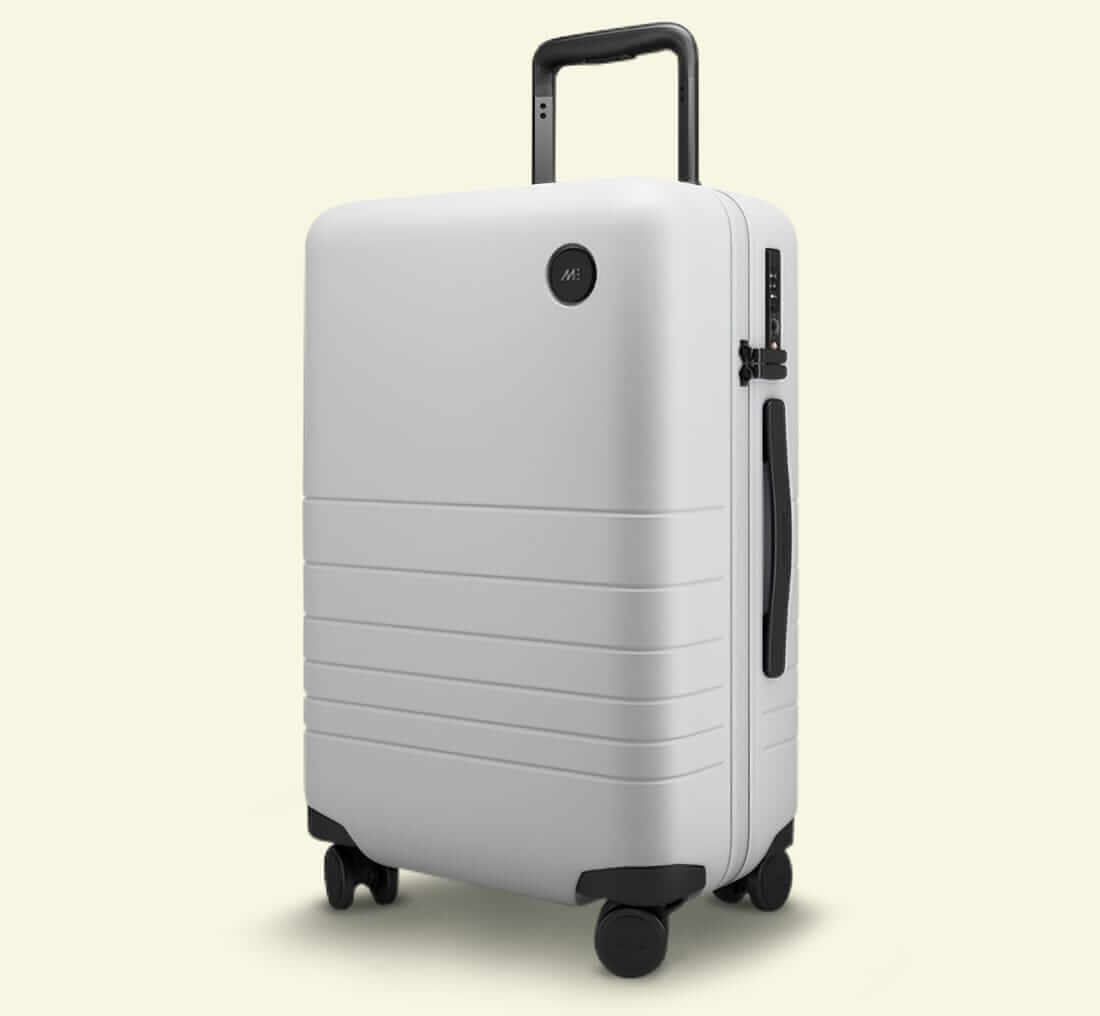Wednesday, March 27th Edition |

|
By Cory Ohlendorf, Valet. EditorAs much as I embrace digital culture, I'm very much okay hanging onto a paper passport and collecting my stamps. |
Today’s Big Story
A Tough Pill to Swallow
Even the Supreme Court seems sick of its abortion pill case and seems likely to preserve access to the medication

The Supreme Court on Tuesday seemed likely to preserve access to a medication that was used in nearly two-thirds of all abortions in the U.S. last year, in the court’s first abortion case since conservative justices overturned Roe v. Wade two years ago.
The medication has emerged as the next front in the battle over how and whether women can terminate their pregnancies. But some reports said the justices appeared listless, even bored, during Tuesday’s oral arguments in FDA v. Alliance for Hippocratic Medicine, the case asking the courts to ban the abortion drug mifepristone. Their frustration with the Alliance case is understandable, since they’ve been dealing with it for nearly an entire year. Last April, after two lower courts issued decisions that would have effectively removed mifepristone from the market, the justices voted 7-2 to leave access to mifepristone intact while this case was being appealed.
On Tuesday, it appeared likely that the justices would break down along the exact same lines—with only Justices Clarence Thomas and Samuel Alito voting to halt access to the drug. In nearly 90 minutes of arguments, a consensus appeared to emerge that the abortion opponents who challenged the FDA’s approval of the medication, mifepristone, and subsequent actions to ease access to it, lack the legal right or standing to sue.
Such a decision would leave in place the current rules that allow patients to receive the drug through the mail, without any need for an in-person visit with a doctor, and to take the medication to induce an abortion through 10 weeks of pregnancy. Mother Jones says that the drug is under attack because it is “safe, proven, and popular” and that much of the arguments against it are based on shoddy science or conjecture. The anti-abortion doctors contend the FDA put patients in danger by removing these requirements, especially the office visit. The data isn’t on their side: Last month, a study in the journal Nature Medicine looked at 6,000 medication abortions provided by virtual clinics, and found that about 98% of them were effective without any additional intervention, and 99.8% were “not followed by serious adverse events.”
But we’re nowhere near the end of this debate. A ruling in this case is expected by June; and another abortion case already is on the docket. Next month, the justices will hear arguments over whether a federal law on emergency treatment at hospitals must include abortions, even in states that have otherwise banned them.
The Flipside: |
Meet Erin Hawley, the wife of Senator Josh Hawley and the woman arguing against the abortion pill. |
Six Presumed Dead After Baltimore Bridge Collapse
Rescue effort turns into search as concerns are raised of a significant disruption to global supply chains
A major bridge in Baltimore collapsed after being hit by a freighter early Tuesday morning, sending at least eight people from a construction crew into the water as a large section of the bridge crashed into the Patapsco River. Six people were presumed dead Tuesday evening, authorities announced as they shifted from a search and rescue operation to a recovery effort. The container ship lost power moments before it struck the Francis Scott Key Bridge, Maryland Gov. Wes Moore said at a news conference.
The steel-arched bridge was considered an engineering feat when it was built in the 1970s. But some structural engineers who reviewed images of the bridge, said that its piers, which are essential to the structure’s integrity, appeared to lack protective barriers. Such fenders could’ve shielded the bridge’s supports from damage by water or collisions. But the U.S. secretary of transportation, Pete Buttigieg, expressed doubt on Tuesday that any bridge could have withstood such a serious collision.
The focus is now turning to the investigation into what went wrong, with a team of transportation safety experts hoping to board the stricken ship and recover its data recorder. Officials have said that maritime traffic through the port—which last year amounted to more than 47 million tonnes of foreign cargo—will be suspended “until further notice.” Speaking to the BBC, Marco Forgione, director general at The Institute of Export and International Trade, said the suspension would have a “significant ripple effect on global supply chains.”
Dig Deeper: |
An ex-merchant marine captain explains there is "no way of controlling" a cargo ship with mechanical error. |
House Members Seem to Really Hate Their Jobs
More and more are cutting their congressional careers off early
Let’s call it the “not-so-quiet quitting”. Members of the House of Representatives seem to hate their jobs so much, some can’t even see them through to the end of the year, reports ABC News. Last week, Rep. Mike Gallagher, who had already opted not to seek reelection, announced he would resign from the House in April. A week earlier, now-former Rep. Ken Buck did the same thing — and didn’t mince words about why he was leaving. “It is the worst year of the nine years and three months that I’ve been in Congress, and having talked to former members, it’s the worst year in 40-50 years to be in Congress,” he told CNN.
Plenty of other representatives seem to agree. So far in the 118th Congress, 48 House members have either left or announced plans to leave Congress voluntarily. That’s 11% of the House, and the session isn’t even over yet. Over at the Senate, eight Senators have announced they won’t be seeking another term while two have already left early. Some are saying a handful more will likely depart before the year is out.
“I’m sure the leadership chaos on the Republican side is not helping keep members in Congress,” Kyle Kondik, a political analyst and managing editor at Sabato’s Crystal Ball at the University of Virginia, told Vox. “Overall, though, the House just does not seem like a very pleasant place to be.” And there are consequences. As the New York Times points out, after Gallagher’s departure next month, Republicans will control 217 House seats to the Democrats’ 213, allowing the G.O.P. to afford only a single defection from the party line on votes when all members are present.
FYI: |
It's worth noting that eight representatives are leaving the House to run for Senate (a common occurrence), so they’re not leaving Congress entirely. |
Why Do We Still Have Paper Passports?
Most would think we’d be fully digital by now
Our bank cards are on our phones. So are our plane tickets. Public transpsortation is mostly paid for virturally these days. Even our vaccination records were moved over into our digital wallets, so it stands to reason that our passports would, by 2024, be fully digitized as well, right? Well, the answer, it seems, is a bit more complicated.
InsideHook took a deep dive into the matter and found that while it’s annoying, it’s still fairly necessary. “Make no mistake about it: the technology is there. It’s been there. Facial recognition and biometric scans are now being used to board planes, and before they went mainstream, they were long in development behind the scenes,” writes Jake Emen. “But passports are designed to work everywhere—not only in lands of perma-5G access … and with about 200 countries in the world, not every single one will be able to adhere to the same electronic security standards that the U.S. and its closest international partners do.”
Of course, the latest passports are embedded with biometric data that immigration officers pull up onto their computers as soon as you scan it. These new books are part of a broader collection of technologies called “e-Passports,” though we get none of the benefits of the “e”. But there is progress being made, albeit slowly. In September, Singapore announced that its Changi airport will be the first international hub to go completely passport-free in early 2024 when it implements an automated immigration checkpoint that uses passengers’ biometric data. And Finland has been trialling their country’s Digital Travel Credentials (DTC) at Helsinki Airport since this fall.
Meanwhile: |
CNBC ranks the most powerful passports for 2024, with Switzerland topping the list. |
|
Boost Your Creativity
Everyone could benefit from being a bit more creative

You don't have to work in a creative field like design to benefit from creativity. Anyone could develop and train their creative faculties to be better at their job or just improve their everyday life.
If you've been feeling stuck in a rut or uninspired lately, then you need to hear this: You can tap into your inner genius to relieve your mental fatigue and lack of ambition. Get those creative juices flowing and all sorts of adventures await. Here's what you need to do.
|
|||||||||




